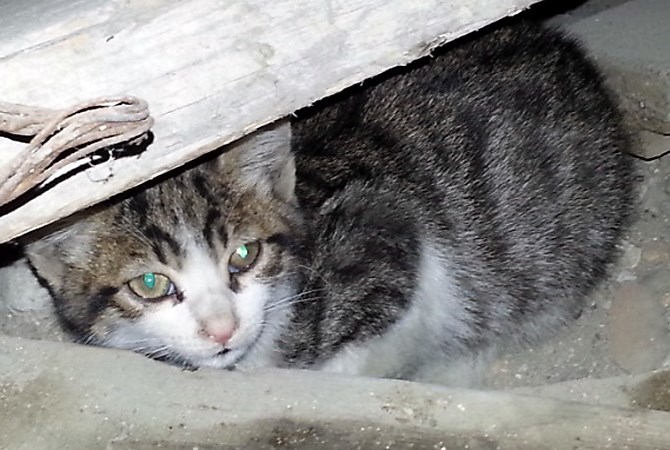
Image Credit: wikipedia.org
March 03, 2015 - 7:26 PM
ESTIMATED 13,000 FERAL CATS IN THE OKANAGAN
KELOWNA – Five years after struggling to get control over a wild rabbit problem, Kelowna now faces a population explosion of another feral species.
“There’s definitely a feral cat problem in Kelowna,” says Cheryll Gillespie, an animal welfare advocate and one of the founders of a new group called the Okanagan Cat Coalition. “We estimate there to be around 13,000 feral cats in the Okanagan valley. And it may be worse than that.”
The coalition, which is still being formed, is currently made up of concerned citizens as well as organizations like the SPCA, Westbank First Nations, AlleyCats, the Okanagan Humane Society and the Veterinary Association. Kelowna SPCA branch manager Suzanne Pugh says details of the plan will not be released to the public until after a meeting takes place later this week.
Similar to the bunny problem of 2008, most of the feral cats living in colonies around Kelowna originated, at one time, from pets. Gillespie says a major part of their strategy will be educating people that cats aren’t disposable, but they also have a plan to deal with the problem before it gets out of hand.
“Our first mandate is to identify the number of colonies that are out there,” she says. “We’ll be asking the public to help us locate and count the cats.”
She asks that anyone who notices feral cats near their homes or places of work report it so the group can begin their second phase of the project – spaying and neutering as many of the adults as possible.
“The biggest obstacle we’re up against is how quickly cats reproduce,” she says. “Time is of the essence. We’re going into kitten season so getting the public's help to identify where these colonies are is really important. Thirteen thousand could become one hundred thousand in two years.”
Some parts of Kelowna, particularly industrial areas like the North End and Sexsmith, already have multiple, independent colonies each consisting of dozens of feral cats living off rodents and garbage. West Kelowna is also seeing dramatic population increases, according to Gillespie.
Some of the cats the group manages to capture will be put up for adoption but those that cannot be rehabilitated will be released back into their colonies, she says.
While some businesses have joined the coalition and are addressing the problem humanely, Gillespie's worry is that many more will take the issue into their own hands if something isn't done soon.
“It’s a very similar problem to what we saw with the bunnies,” she says. “The bunnies got really bad before people recognized there was a problem and by then it’s a far greater problem to deal with. If we nip it in the bud now it’s better for the animals, it’s better for everybody. It’s a solvable problem if we recognize that it is a problem and don’t ignore it.”
To contact the reporter for this story, email Adam Proskiw at aproskiw@infotelnews.ca or call 250-718-0428. To contact the editor, email mjones@infotelnews.ca or call 250-718-2724.
News from © iNFOnews, 2015